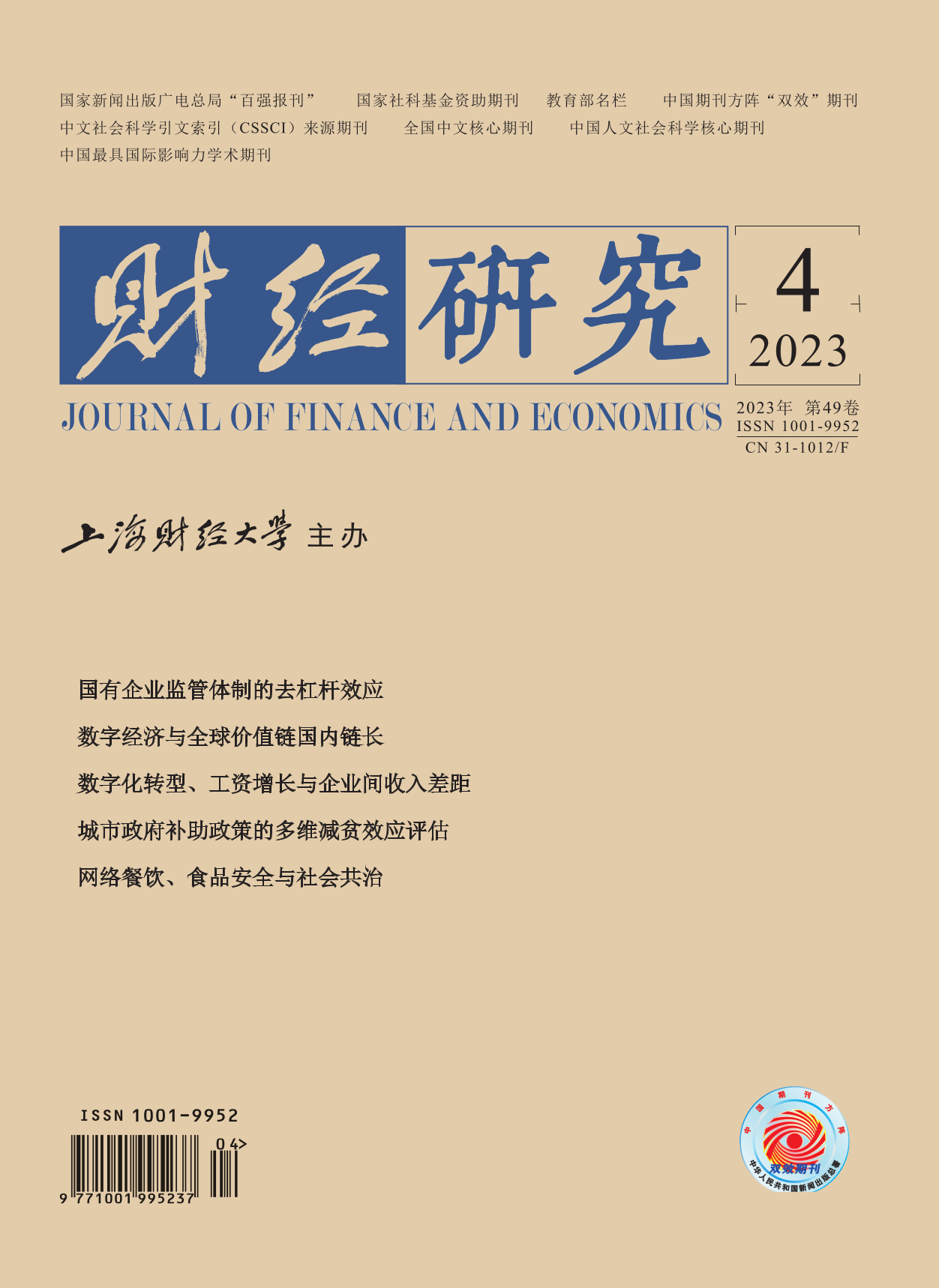传统二元制功能定位要求所有国有企业都承担社会性与盈利性并举的功能,而分类改革则秉持因类制宜的制度逻辑,鼓励并引导不同类别国有企业专注于各自适宜的功能定位,使得国有企业功能定位自此呈现出专业化特征。为此,文章以分类改革的实施作为准自然实验,考察了与传统二元制功能定位相比,改革后的专业化功能定位对竞争类国有企业投资羊群行为的影响。研究发现,专业化功能定位显著抑制了竞争类国有企业投资羊群行为,这种抑制效应在行业产品市场竞争更弱和地区市场化程度更高的情况下更加明显。其中,改善委托代理问题和促进经理人才能发挥是这种抑制效应的主要影响路径。此外,专业化功能定位还提高了竞争类国有企业的投资效率,具体表现为投资水平对企业经济业绩的边际贡献在分类改革后显著提升。文章从功能定位专业化视角揭示了分类改革影响微观企业行为的政策效应、作用机制及其经济后果,为进一步深化国有企业改革、化解因投资羊群行为引致的产能过剩问题提供了重要的经验借鉴。
专业化功能定位与竞争类国有企业投资羊群行为——基于国有企业分类改革的准自然实验
摘要
参考文献
5 吕长江,张海平. 股权激励计划对公司投资行为的影响[J]. 管理世界,2011,(11):118−126. DOI:10.19744/j.cnki.11-1235/f.2011.11.011
7 王美英,陈宋生,曾昌礼,等. 混合所有制背景下多个大股东与风险承担研究[J]. 会计研究,2020,(2):117−132. DOI:10.3969/j.issn.1003-2886.2020.02.009
9 徐伟,张荣荣,刘阳,等. 分类治理、控股方治理机制与创新红利−基于国有控股上市公司的分析[J]. 南开管理评论,2018,(3):90−102. DOI:10.3969/j.issn.1008-3448.2018.03.010
10 闫伟宸,肖星. 政府目标、国企分类与高管继任[J]. 南开管理评论,2019,(5):130−141. DOI:10.3969/j.issn.1008-3448.2019.05.012
12 杨瑞龙. 国有企业改革逻辑与实践的演变及反思[J]. 中国人民大学学报,2018,(5):44−56. DOI:10.3969/j.issn.1000-5420.2018.05.005
14 袁江天,张维. 多任务委托代理模型下国企经理激励问题研究[J]. 管理科学学报,2006,(3):45−53. DOI:10.3321/j.issn:1007-9807.2006.03.007
15 张敦力,江新峰. 管理者能力与企业投资羊群行为:基于薪酬公平的调节作用[J]. 会计研究,2015,(8):41−48. DOI:10.3969/j.issn.1003-2886.2015.08.006
17 Aggarwal R K, Samwick A A. Empire-builders and shirkers: Investment, firm performance, and managerial incentives[J]. Journal of Corporate Finance,2006,12(3): 489−515. DOI:10.1016/j.jcorpfin.2006.01.001
18 Bai C E, Lu J Y, Tao Z G. The multitask theory of state enterprise reform: Empirical evidence from China[J]. American Economic Review,2006,96(2): 353−357. DOI:10.1257/000282806777212125
19 Battilana J, Dorado S. Building sustainable hybrid organizations: The case of commercial microfinance organizations[J]. Academy of Management Journal,2010,53(6): 1419−1440. DOI:10.5465/amj.2010.57318391
20 Bertrand M, Mullainathan S. Enjoying the quiet life? Corporate governance and managerial preferences[J]. Journal of Political Economy,2003,111(5): 1043−1075. DOI:10.1086/376950
23 Demerjian P, Lev B, McVay S. Quantifying managerial ability: A new measure and validity tests[J]. Management Science,2012,58(7): 1229−1248. DOI:10.1287/mnsc.1110.1487
24 Devenow A, Welch I. Rational herding in financial economics[J]. European Economic Review,1996,40(3−5): 603−615. DOI:10.1016/0014-2921(95)00073-9
25 Du F, Tang G L, Young S M. Influence activities and favoritism in subjective performance evaluation: Evidence from Chinese state-owned enterprises[J]. The Accounting Review,2012,87(5): 1555−1588. DOI:10.2308/accr-50196
27 Giroud X, Mueller H M. Does corporate governance matter in competitive industries?[J]. Journal of Financial Economics,2010,95(3): 312−331. DOI:10.1016/j.jfineco.2009.10.008
29 Knyazeva A, Knyazeva D, Morck R, et al. Comovement in investment and corporate governance[R]. EFM, 2008.
31 Maug E, Naik N. Herding and delegated portfolio management: The impact of relative performance evaluation on asset allocation[J]. The Quarterly Journal of Finance,2011,1(2): 265−292. DOI:10.1142/S2010139211000092
32 Ocasio W. Towards an attention-based view of the firm[J]. Strategic Management Journal,1997,18(S1): 187−206. DOI:10.1002/(SICI)1097-0266(199707)18:1+<187::AID-SMJ936>3.0.CO;2-K
33 Ocasio W. Attention to attention[J]. Organization Science,2011,22(5): 1286−1296. DOI:10.1287/orsc.1100.0602
35 Shleifer A. State versus private ownership[J]. Journal of Economic Perspectives,1998,12(4): 133−150. DOI:10.1257/jep.12.4.133
36 Wei C Y. State ownership and target setting: Evidence from publicly listed companies in China[J]. Contemporary Accounting Research,2021,38(3): 1925−1960. DOI:10.1111/1911-3846.12665
引用本文
朱滔, 涂跃俊. 专业化功能定位与竞争类国有企业投资羊群行为——基于国有企业分类改革的准自然实验[J]. 财经研究, 2023, 49(4): 20-34.
导出参考文献,格式为:





 5272
5272  4966
4966

